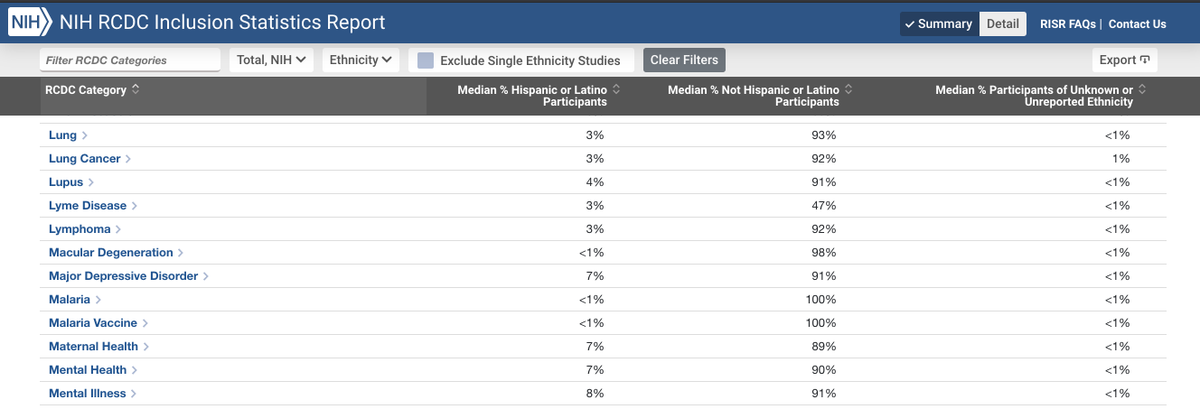With disparities of care, research helps give us the lay of the land. But how generalizable is research when samples don't capture the diversity of the population? Understanding mental health rests on how representative research samples are to that of the population. THREAD (1/4)
If we don't sample a diverse group of participants we may be "underpowered" to detect important relationships. For example, we've seen mixed data if Blacks and Hispanics may be at higher risk for depression, but many of those studies had only modest numbers of those groups. (2/4)
@NIH actually keeps a running tab on this data . While some disease conditions (e.g. cardiac disease) appear to have broad representation, other conditions, particularly mental health have room for improvement. (3/4)
. While some disease conditions (e.g. cardiac disease) appear to have broad representation, other conditions, particularly mental health have room for improvement. (3/4)
https://report.nih.gov/RISR/#/home?facet=Race
 . While some disease conditions (e.g. cardiac disease) appear to have broad representation, other conditions, particularly mental health have room for improvement. (3/4)
. While some disease conditions (e.g. cardiac disease) appear to have broad representation, other conditions, particularly mental health have room for improvement. (3/4)https://report.nih.gov/RISR/#/home?facet=Race

 Read on Twitter
Read on Twitter


